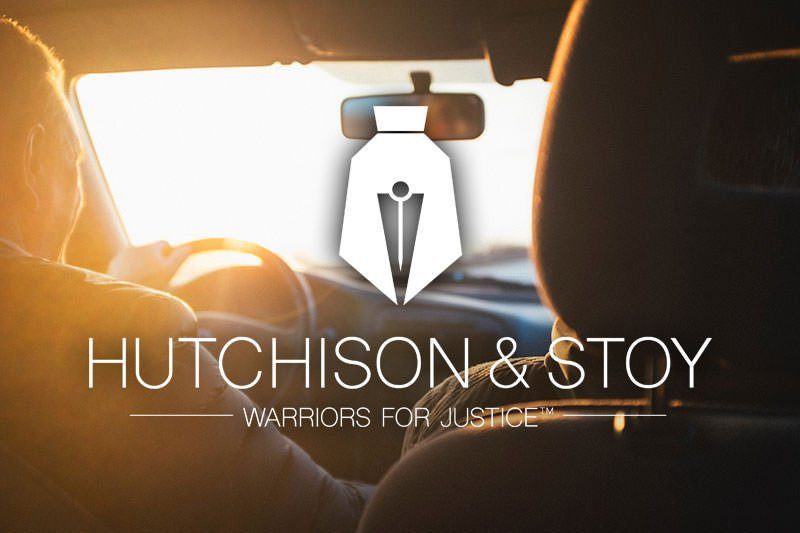In Texas alone, one person is injured in a car accident approximately every 2 minutes (Texas Department of Transportation). The statistics waver from year to year, but one thing remains constant: what to do after a car accident injury is a question many motorists are not prepared to answer.
In this post, we will cover the 9 things you should do after you have been in a car wreck.
These include:
- Assess the Situation and your Surroundings
- Call 911
- Check on Others
- Photograph the Scene and Take Notes
- File a Police Report
- Get Medical Care after the Accident
- File an Insurance Claim
- Find a Reputable Personal Injury Attorney
- Stay on Course with Treatments & Doctor Instructions
Most car wreck victims experience some kind of trauma, whether it be physical, emotional, financial or all three. In some cases, the early decisions following an accident, such as where to tow the damaged vehicle or which hospital to visit, are made for the victim.
In those cases where you’re able to walk away from a crash without emergency medical attention, you may find yourself wondering, “What do I do now?”
Whether it’s how to find a doctor after a car accident or how to file an insurance claim, these questions can often produce more stress than the accident itself.
If you’ve experienced a recent accident and are looking for answers, follow the steps outlined below. If you don’t find the answers you’re seeking or need additional assistance, we discuss more topics related to auto accidents on our Fort Worth Car Accident Lawyer page.
If you’re looking for a personal injury attorney to help you during this difficult time, contact the Warriors for Justice at Stoy Law Group, PLLC in Fort Worth, Texas, at (817) 820-0100 or fill out a free case evaluation form.
1. Assess the Situation and Your Surroundings
When an accident occurs, it’s jarring to everyone in the immediate vicinity. This includes the drivers of the vehicles involved, as well as any bystanders. As the driver, your first action is to check yourself for serious injury before moving on to the following steps.
If you have children or other passengers in your car, check on their status next. One of the most common medical conditions experienced during an accident is shock. Your passengers may appear unharmed and insist they feel fine, but shock can take many forms and be very serious if not treated properly. This applies to you as well, so take care and pay attention to your body’s signals.
Keep in mind, if you or one of your passengers’ experiences neck or back pain of any kind, avoid movement until instructed by a professional (unless safety is a concern). Moving an individual with a neck or back injury could cause further damage.
Once you’ve assessed the situation inside your vehicle, take a look outside.
What did you hit?
Where did your car come to rest?
Are there downed power lines or other dangers in the immediate vicinity?
If you see something that produces safety concerns, remain inside your vehicle until help arrives.
However, if your car is smoking or you see flames, get everyone out of the vehicle immediately. Move any injured victims as carefully as possible, but make sure everyone is out of harm’s way.
2. Call 911
It doesn’t matter how severe the accident was or how you feel at that moment. Even if you think you’re fine, you should always call 911 and wait for a professional to arrive and check you and any family members for injuries.
Your body releases adrenaline into your system during a traumatic experience like a car wreck. It increases your blood circulation and breathing and prepares your muscles for exertion. The release of adrenaline often allows people to perform physical acts they normally wouldn’t.
This also means you may have an internal injury and not realize it. It that’s the case, 911 could save your life or the life of a family member, so don’t shy away from making that call (or letting someone else make it for you if necessary).
3. Check on Others
It is also important to check to make sure no other bystanders were injured, especially if the accident occurred in a populated area. If another vehicle was involved, check on the driver and passengers.
In some cases, you may feel anger towards the other driver, especially if that person is at fault. Keep in mind, this is not the time to let your anger control your actions.
Everyone’s safety must come first.
If this was a minor accident, the other driver might be tempted to leave the scene or ask you not to report the accident.
There are a number of reasons for this request (but none of these should stop you from calling the police):
- No auto insurance
- No driver’s license or invalid license
- Outstanding warrant
- Distracted driving
- The driver was under the influence of alcohol or drugs
- Stolen vehicle
4. Photograph the Scene and Take Notes
If you are physically able, be sure to photograph the accident site and any vehicles involved. Taking this action now will help you later in the event you need to file a personal injury claim.
It will also make dealing with your insurance company considerably easier.
Photograph the following:
- Your vehicle from all angles
- The other vehicle from all angles
- Impact points on both vehicles
- The scene from a distance, including stop lights, street signs, and landmarks
- The scene from multiple angles
- License plates
- The other party’s insurance card
It’s also a good idea to take down a few notes if you aren’t too distracted or in pain. Try to recount the events leading up the accident; your route, including any turns or stops you made; other vehicles in the area at the time of the accident; and the accident itself as you recall it.
Your memory of the event may become skewed over the next few days as you deal with the repercussions, so as long as you are able, take this time to write down details that may be relevant later.
It’s important to remember that what the other driver says now may not coincide with what they tell the police and the insurance companies in the future. The details you capture via your camera or notes will help everyone stay honest.
If you file a personal injury claim, you’ll be thankful you collected this information at the scene.
5. File a Police Report
Filing a police report immediately following a car accident is a necessity.
However, a serious injury may preclude you from filing a report until after you’ve recovered to some degree. If that’s the case, be sure to contact the police as soon as you’re ready to provide your version of the story.
If you can speak with an officer at the time of the incident, even if you believe you are not at fault, stay on scene and do so.
Leaving the scene (unless a medical emergency requires it) without giving your perspective can be detrimental to any future claims you choose to file.
Utilize your photographs and notes when speaking with the police officer. As adrenaline wears off, you may become exhausted and confused, so having references can make the process of completing a police report easier.
If at any time you begin to feel pain or discomfort, let the officer know and seek medical attention. Recall that adrenaline may mask pain and injury until it leaves your system. Pay attention to your body’s signals and respond accordingly.
6. Get Medical Care After a Car Accident
You may feel fine immediately following a wreck, but symptoms of serious injury can occur several days later. Always get checked out by a health professional, especially if you experience any of the following:
- Pain, especially in the back or neck – whiplash
- Abdominal discomfort or swelling
- Dizziness
- Headaches
- Nausea or vomiting
- Seizures
- Numbness
- Drastic changes in personality
Head trauma can appear benign at first but produce serious issues later if left undiagnosed. It’s important to make sure you are in good health following even the most minor accident.
Be sure to keep a record of all medical bills, statements, and prescriptions in case you need to file a personal injury claim in the future.
Even if you are uninsured, don’t refuse an ambulance ride to the hospital if you believe you need medical attention. Your health is the most important thing at this moment. If another party was involved and proven at fault, their insurance company may cover your bills.
Remember to follow-up with your primary care physician as instructed. Your doctor may refer you to another facility or physician for physical therapy.
If you have trouble finding a doctor who will see you following a car accident, contact Stoy Law Group for assistance.
We can help you with your medical bills as well, so don’t hesitate to seek help if you need it.
7. File an Insurance Claim
Most of us don’t like dealing with insurance companies on a normal day, let alone following a car wreck.
However, you’ll need to file an insurance claim to move forward with car repairs and payment of medical bills.
Insurance companies ask that you contact them as soon as you are physically able following any kind of accident. You should reach out to your insurance company first to begin the claims process.
You do not have to provide a recorded statement initially, even if requested by an agent.
Make sure you contact an attorney before participating in an interview.
We suggest contacting the other party’s insurance company as well.
Again, do not provide details of the accident until you consult with your attorney.
This is also a good time to organize your notes from the accident, photographs, medical bills and any documentation concerning your treatment, bills for car repair and towing, and other paperwork that may be relevant to your case.
It’s important that you do not sign any release forms before you’re ready to settle your case.
Doing so will release your insurance company from any responsibility for subsequent claims. This is not something you want to do until you are 100% certain you have no additional medical issues to deal with at a later date.
8. Finding an Attorney After a Car Wreck
You may feel confident you can handle this situation on your own.
However, as time passes and you continue dealing with the insurance companies, hospital/physician billing departments and your car repair shop, you could find yourself wishing you had a little guidance.
That’s where we come in.
There’s no reason to fight this on your own. We offer a free online case evaluation to help us determine where you stand and how we can help you.
Call us at (817) 820-0100 to learn more about the services we offer.
9. Stay the Course with Treatments & Doctor Instructions
Trauma, whether physical or emotional, can take time to heal. Dealing with a personal injury lawsuit during all of this can be traumatic as well, but the overall goal of these efforts is to help you get back on your feet and return to normal.
Be sure to adhere to your doctor’s instructions regarding treatment and attend all follow-up appointments.
Continue to keep a record of all receipts and invoices associated with your injury, and submit them to your attorney as requested.
Most importantly, do what you need to do to get back on track with your life.
The accident may have put a few kinks in your armor, but they can be repaired. Don’t let your injuries or emotional stress rule your world.
Seek the help you need and make strides to find your “normal” again.
Who to Call When You Need Help After a Car Accident
If you’re looking for an experienced Fort Worth car accident attorney, contact the Warriors for Justice at Stoy Law Group, PLLC in Fort Worth, Texas. You can reach us at (817) 820-0100.
We recognize this is a difficult time for you and your family.
Know that we take our work very seriously.
Our goal is simple: we want to help you find your “normal” again. We’re here for you when you need us.
If you’re reading this, chances are you were recently in a car wreck and want to know what steps to take after a car wreck. Some of the events below may have already happened.
If you think you “messed up†because you didn’t do exactly as we suggest, relax.
A good lawyer can usually fix most things. If you came upon this page and you haven’t been in a car wreck, hopefully, the information below is helpful in the event you ever are in one.
If you have any questions or just want to discuss your situation with a lawyer, contact Stoy Law Group by phone at (817) 820-0100 or fill out a free case evaluation form online.














